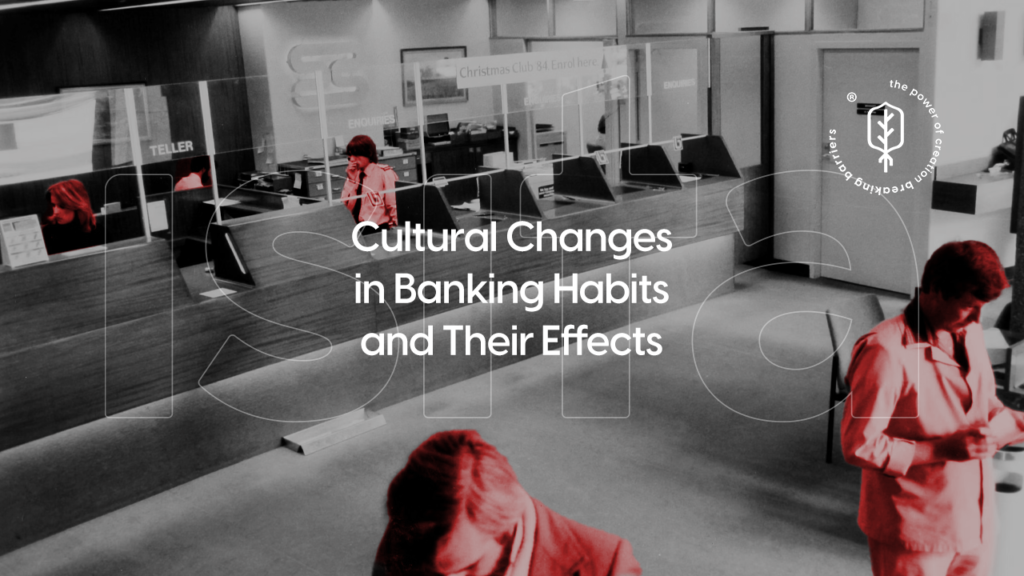The financial services industry is undergoing a significant transformation, driven by advancements in artificial intelligence.
Among these, conversational AI has emerged as a game-changer, enabling financial institutions to redefine customer interactions, enhance operational efficiency, and streamline service delivery.
By leveraging AI-powered chatbots and virtual assistants, organizations are improving client experiences and gaining a competitive edge in an increasingly digital world.
As customer expectations evolve, the demand for instant, seamless, and personalized services has never been higher.
Conversational AI meets this demand, revolutionizing how financial institutions interact with their clients. From addressing basic inquiries to managing complex transactions, conversational AI is becoming an integral part of the financial services ecosystem.
Applications of Conversational AI in Financial Services
Conversational AI is reshaping various aspects of financial services by automating processes and enhancing customer engagement. Here are some key applications:
1. Customer Support
Traditional customer service channels often struggle with long wait times, inconsistent service quality, and limited availability. Conversational AI resolves these issues by:
- Offering instant responses to common inquiries.
- Providing 24/7 availability, ensuring clients can access support anytime.
- Escalating complex issues to human agents seamlessly.
For instance, chatbots can assist with frequently asked questions about account balances, loan eligibility, or payment status, allowing human agents to focus on more complex tasks.
2. Fraud Detection and Prevention
Financial institutions face constant threats from fraud and cyberattacks. Conversational AI enhances fraud detection by:
- Monitoring customer interactions for suspicious patterns or activities.
- Sending real-time alerts about potential fraud attempts.
- Guiding customers through secure verification processes.
Virtual assistants can help clients identify unauthorized transactions and take immediate action, such as freezing accounts or reporting the issue.
3. Personalized Financial Recommendations
Conversational AI leverages customer data and machine learning algorithms to deliver tailored financial advice. This includes:
- Suggesting investment options based on risk appetite and financial goals.
- Recommending budgeting strategies and savings plans.
- Offering loan or credit card options that match customer profiles.
Personalization enhances customer satisfaction and fosters trust, making clients more likely to engage with financial products and services.
4. Loan Processing and Management
Loan application processes are often time-consuming and paperwork-heavy. Conversational AI simplifies this by:
- Guiding customers through application forms.
- Providing instant updates on application status.
- Automating document verification processes.
This reduces processing times and enhances the customer experience, leading to higher conversion rates.
5. Financial Literacy and Education
Conversational AI also plays a role in improving financial literacy. Chatbots can explain complex financial terms, guide clients through tools like loan calculators, and educate them about responsible financial practices.
Benefits for Financial Institutions
The adoption of conversational AI delivers numerous advantages for financial institutions, helping them stay ahead in a competitive market:
1. Cost Reduction
Automating routine tasks with AI-powered chatbots significantly reduces operational costs. Institutions save on staffing expenses while maintaining high-quality service. For instance, a single chatbot can handle thousands of queries simultaneously, making it a cost-effective alternative to traditional call centers.
2. Faster Query Resolution
Conversational AI ensures that clients receive quick responses to their questions. This not only improves customer satisfaction but also increases operational efficiency by freeing up human agents to address more complex or sensitive issues.
3. 24/7 Availability
Unlike human agents, chatbots and virtual assistants operate around the clock. This ensures that customers can access support at any time, including weekends and holidays, enhancing convenience and loyalty.
4. Improved Accuracy
AI systems minimize the risk of human error, particularly in repetitive tasks like data entry, transaction processing, or information retrieval. This improves the reliability of financial services and builds customer trust.
5. Enhanced Scalability
As customer bases grow, financial institutions can scale their services effortlessly by integrating additional AI capabilities. Chatbots can handle increased interaction volumes without compromising service quality.
6. Better Customer Insights
Conversational AI collects and analyzes data from customer interactions, providing valuable insights into behavior, preferences, and pain points. These insights enable institutions to refine their services and design more effective marketing strategies.
Case Studies: Successful Implementations in Finance
Several financial institutions have already embraced conversational AI with remarkable success. Here are some examples:
1. Bank of America’s Erica
Bank of America introduced Erica, an AI-powered virtual assistant, to help clients manage their finances. Erica provides insights into spending patterns, suggests savings tips, and notifies users about upcoming bills. The assistant has significantly improved customer engagement and satisfaction, handling millions of interactions annually.
2. Mastercard’s KAI
Mastercard launched KAI, a conversational AI bot that helps customers with account management and transaction queries. By integrating KAI into messaging platforms like Facebook Messenger, Mastercard provides seamless support and enhances user convenience.
3. HSBC’s Amy
HSBC developed Amy, a chatbot designed to assist commercial banking clients. Amy answers questions about products and services, streamlines account opening processes, and provides financial advice. The implementation of Amy has reduced response times and improved client relationships.
4. PayPal’s Chatbot Integration
PayPal’s AI chatbots assist users with tasks such as resetting passwords, checking transaction statuses, and resolving disputes. By integrating these chatbots across multiple platforms, PayPal has created a cohesive and efficient customer service experience.
The Future of Financial Services Powered by AI
Conversational AI is just the beginning of a larger transformation in financial services. As technology continues to advance, AI systems will become more sophisticated, enabling institutions to offer even greater value to their clients.
1. Enhanced Emotional Intelligence
Future AI systems will incorporate emotional intelligence, allowing them to detect customer emotions and adapt responses accordingly. This will lead to more empathetic and human-like interactions.
2. Deeper Personalization
As AI systems gather and process more data, they will provide increasingly personalized experiences. Clients will receive hyper-specific advice tailored to their unique financial situations and goals.
3. Integration with Emerging Technologies
Conversational AI will integrate with other technologies, such as blockchain and the Internet of Things (IoT), to deliver innovative financial solutions. For example, IoT-enabled devices could provide real-time spending updates through voice-activated AI assistants.
4. Expansion of Use Cases
The applications of conversational AI will continue to expand, encompassing areas like wealth management, insurance, and regulatory compliance. Financial institutions will leverage AI to automate complex processes and deliver better outcomes.
Conclusion
Conversational AI is revolutionizing the financial services industry, offering unparalleled opportunities for enhancing customer experiences and optimizing operations. From providing instant support to detecting fraud and delivering personalized advice, AI-powered chatbots and virtual assistants are driving efficiency and innovation.
For financial institutions, the adoption of conversational AI is no longer a luxury—it’s a necessity to remain competitive in a rapidly evolving landscape. By embracing this technology, organizations can reduce costs, improve customer satisfaction, and position themselves for long-term success.
The future of financial services lies in intelligent, customer-centric solutions powered by AI. As the technology continues to evolve, institutions that invest in conversational AI today will lead the way in shaping tomorrow’s financial ecosystem.



